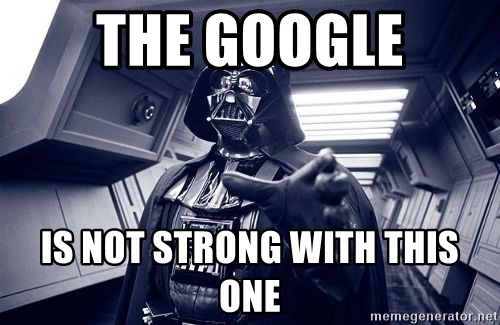Are you running Google Ads? You may need to check your keyword match types.
In February, Google announced that they are phasing out Modified Broad Match keywords, and the rollout will be completed this month.
Our PPC marketing agency nerds are quite obsessed with the evolving search ad platform!
In this blog we are sharing our findings such as the changes that are happening now, the impact to advertisers, and what should advertisers do.
Let’s Review Keyword Match Types
Before we discuss the changes that are happening, let’s quickly review the current match types.
(If you are pretty much confident in your knowledge about this area, just skip this part)
Before the February announcement, the match types in Google Ads are the following:
- Broad Match
- Modified Broad Match
- Phrase Match
- Exact Match
If you use broad match, your ads might be shown to people who used a search query that is contextually similar to your keywords.
If you use modified broad match, your ads might be shown to people who used a search query with all the words you used with a plus sign. But the order is not important.
Here are some examples of broad match modifier keywords:
If you use phrase match, your ads might be shown to people who used search queries containing your target keywords within quotation marks. Order is also not important in this match type.
If you use exact match, your ads might be shown to people who used search queries containing exact keywords within brackets. The order of keywords is important in this match type.
SUPER IMPORTANT TIP # 1: Group similar keywords into ad groups. This will help Google show more relevant ads to your potential customers. You can create ad groups based on your products, services, or other categories.
Google Phases Out Modified Broad Match
Google has completed its rollout, so you can no longer use Modified Broad Match. Let’s call this MBM from now on.
In its place, Phrase Match will be expanded to cover MBM’s behaviour, and Google will continue to respect the order of keywords if essential to the search intent or meaning.
Yep, everything will be okay, mate.
Just be sure to really understand what’s happening and listen to our PPC Nerd’s recommendations.
For now, you don’t have to make any drastic move because performance data will not be erased (hopefully), but the new matching behaviour has started to roll out.
If you have MBM keywords, Google will continue to serve ads, but their matches will be updated following Phrase Match.
This scenario reminds us of what happened when Google phased out text ads and pushed expanded text ads.
Existing text ads before the transition were still “respected and served”, but Google Ads managers cannot create new text ads.
Google promises that this move will help PPC managers save time, so they will can focus less in keywords management.
How Does the New Matching System Work?
To illustrate the new mechanism, Google used a scenario where a moving company likes to target people looking to move from Sydney to Melbourne but want to exclude people looking to move from Melbourne to Sydney.
Here’s how the keywords for “moving services Sydney to Melbourne” (phrase match) or +moving +services +Sydney +to +Melbourne (modified broad match) would be seen in this new system:
Generally, the new mechanism is now capable of reading search intent.
Here are more examples of keyword matching before and after the update:
SUPER IMPORTANT TIP # 2: Use Google Ads Editor. This is a free, downloadable application that will allow you to make bulk changes in your Google Ads. Because you are working offline, your changes will not be implemented unless you are ready to post.
How to Prepare Your Google Ads?
While there’s no need to panic, you still have to prepare your Google Ads strategy so you can maximise the benefits of this change.
As expected, Google wants advertisers to keep an eye on the Recommendations section of their Ads Manager.
Expect more recommendations about redundant keywords, so you have to review your keyword list carefully.
You may see a higher optimisation score if you choose to apply the recommendations.
How about your budget?
The change will probably affect your budget if you allocate your spend by match types or divide match types by Ad Group or Campaign.
Google will also prompt you about negative keywords and broad match with Smart Bidding.
Beyond Match Types: What’s Behind These Changes?
Google insists that the update is all about simplifying its matching system.
But our PPC nerds believe that this is part of Google’s hidden agenda to dominate the world.
(Just kidding! They already did).
Seriously, Google wants advertisers to move away from overly managing keywords and instead focus on more critical business objectives.
For example, if you are a financial advisor, you may want to spend most of your time helping your clients find the ideal loan for their needs.
That sounds more fun than checking your keyword list every day.
So Google is really pushing advertisers to trust its automation features.
One clue about this plan is the difference between our campaigns using Manual CPC and Target CPA.
Our PPC nerds at WebBuzz noticed that our campaigns that are not on machine learning (Manual CPC) have lower optimisation scores than our campaigns using smart bidding (Target CPA).
So, if you still insist on getting complete control of your Google Ads because you don’t trust the robust, that persistence may no longer be viable.
Defying Google’s “AI agenda” may lead to the following less desirable results:
- Less accurate leads
- More ‘wastage’ in adspend
- Higher Cost Per Lead (CPL)
SUPER IMPORTANT TIP # 3: Try Target CPA as your bidding strategy. It uses Smart Bidding strategy so you can automate your bids to get more conversions within your target cost per acquisition. This is ideal for lead generation campaigns.
Let Our PPC Nerds Help You
At WebBuzz, we have our in-house PPC nerds who are obsessed with Google Ads and goes into frenzy when they bring awesome results for our clients.
Our team can help you review your Google ads strategy, develop ad copies and landing pages that can quickly convert clicks to leads, and completely get your mind off from Adwords management (if you really like it).
Whatever your industry, WebBuzz can help you with your PPC goals.
Call for a chat 1300 41 00 81.















